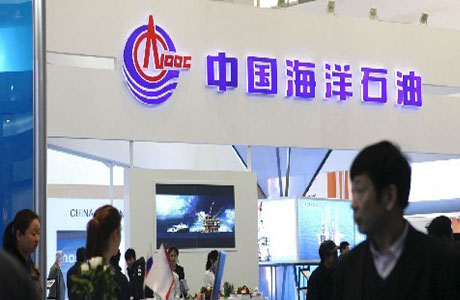(Ecns.cn)--Media reports voiced concern after China's largest offshore oil and gas producer rigorously denied charges that it attempted to cover up oil spills off the coast of Shandong Province, saying there are more leaks that have never been disclosed.
Jiang Yongzhi, spokesman from the China National Offshore Oil Corporation (CNOOC), said on Monday that the oil spills are under control and the leakage is almost cleaned up.
"The incident is still under investigation, and we will publicize the results at an appropriate time," he said.
An informant reported the incident online in mid-June, more than two weeks earlier than Jiang's statement. The report caused a splash on the internet after Weibo.com, a popular microblogging site, published it on June 21.
However, CNOOC remained silent until China National Radio (CNR) reported the leakage on Sunday, when the public was eventually informed that the rumor, which had been circulating on the internet for half a month, was not rumor at all.
The CNR report said that spills occurred at the Penglai 19-3 oilfield in Bohai Bay and covered an area of 200 square meters, while the Shandong-based Luzhong Morning Post reported earlier that the spill had, at one point, grown into an "oil belt" about 3 kilometers long and up to 30 meters wide.
Jiang denied both reports and declined accusations that CNOOC sought to cover up the accident.
"We reported the spills to relative authorities soon after it took place and treatment of the spills are under supervision," he said, without offering details.
The oil field is jointly developed by CNOOC, which holds 51% of the shares, and ConocoPhillips, the third-largest integrated energy company in the US, which holds 49% of the shares and is in charge of the drilling operation.
ConocoPhillips China e-mailed a statement to the Beijing Times on Friday, claiming that the spills were under control and had not received any report of injuries or impacts on marine life, fisheries, or ships.
Penglai 19-3 oilfield started operations in 2002 and is the largest offshore oilfield in China with a daily output of up to 165,000 barrels, reports said.
In a follow-up report by CNR on Monday, the State Oceanic Administration (SOA) is set to hold a press conference Tuesday to announce the results of the investigation and evaluation of the biological and environmental impact of the ocean spills, which means the SOA, as the "relative authorities" Jiang talked about, were informed from the beginning.
The public expressed their discontent on the internet about the lack of information that is being provided.
"CNOOC is lying to the public through its vague responses," said a web user tagged Hu Yinbin. "We have learned our lesson from numerous incidents concerning public security that cover ups only lead to fear."
Meanwhile, some aquatic farms along Bohai Bay have reported more fish deaths in the past ten days.
"The death rate of fish has been higher than usual recently," said a woman surnamed Tian from the Yongxing Aquatic Company in Daqindao Township, Shandong, 74 kilometers away from the oilfield.
"The oil leak will definitely influence the fishing industry nearby, but we must carry out further investigations to see if the oil leak is the direct reason for the dead seaweed and fish," said a representative from the fisheries association in Changdao County.
However, a staff member at CNOOC said via a microblogging site that the media has been exaggerating the incident and manipulating public opinion, and stated that ConocoPhillips, not CNOOC, should be blamed.
In response, industry experts asked CNOOC to take responsibility.
"It's not the time to be passing the blame around," said Han Xuegong, an oil expert. "ConocoPhillips is mainly responsible for the spills as the party in charge of the drilling operations, while CNOOC also has the duty to disclose the incident."


















